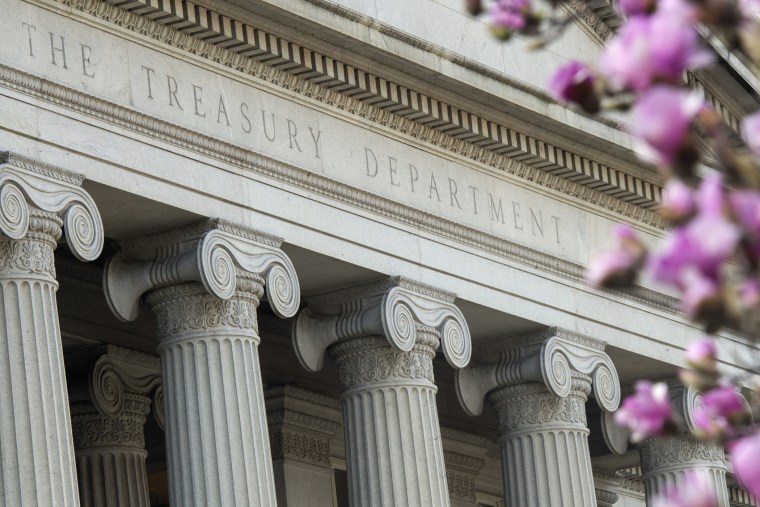I don't imagine anyone who watches American politics is bored. Between multiple ongoing policy fights and White House controversies, dull moments are in short supply.And yet, conditions are about to get quite a bit more intense. There's growing talk about a
possible government shutdown next month, and much to everyone's chagrin, it's nearly time to raise the debt ceiling. CNBC
reported the other day:
Treasury Secretary Steven Mnuchin has called on Congress to raise the United States debt limit "at the first opportunity."In a letter to congressional leaders dated Wednesday, Mnuchin said the Treasury will stop issuing certain state and local securities on March 15, when the most recent suspension of the debt limit expires. Mnuchin said the Treasury will likely start taking "extraordinary measures" the next day, when the U.S. will be at its statutory limit, to prevent default.
March 15, by the way, is tomorrow.Mnuchin specifically told lawmakers, "As I said in my confirmation hearing, honoring the full faith and credit of our outstanding debt is a critical commitment. I encourage Congress to raise the debt limit at the first opportunity so that we can proceed with our joint priorities."We don't yet have a specific date at which point the Treasury will have exhausted their "extraordinary measures," but with Mnuchin's letter in mind, it looks like Congress will need to act within the next few months.In theory, this should be effortless. Raising the debt limit costs nothing; it's a one page piece of legislation; and the whole thing can be wrapped up in an afternoon.In practice, as we've seen in recent years, it's an entirely different story.In fact, Bloomberg Politics had an
interesting piece on this today.
President Donald Trump hasn't weighed in recently [on the debt ceiling], but both he and his hawkish budget chief have criticized Republicans in the past for being too willing to raise the debt limit -- a statutory cap on how much money the U.S. can borrow -- and may be more willing than previous administrations to threaten a default.For Trump, the debt ceiling could emerge as tempting leverage to demand concessions, especially as Senate Democrats keep threatening to block his priorities in Congress.
In other words, it's at least possible that the president, who's
whined incessantly about debt-ceiling increases in the recent past, may tell Congress that he will only sign an extension if certain demands are met.Either way, watch this space.
